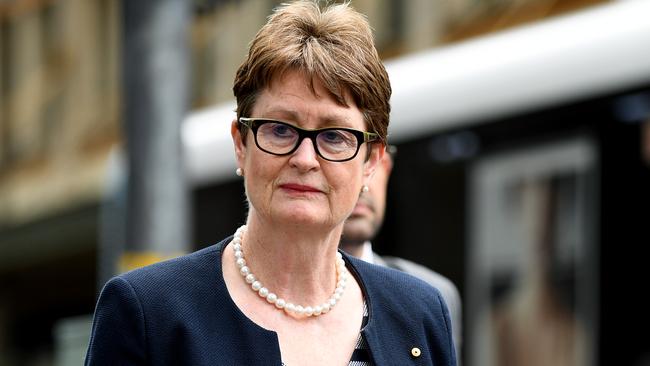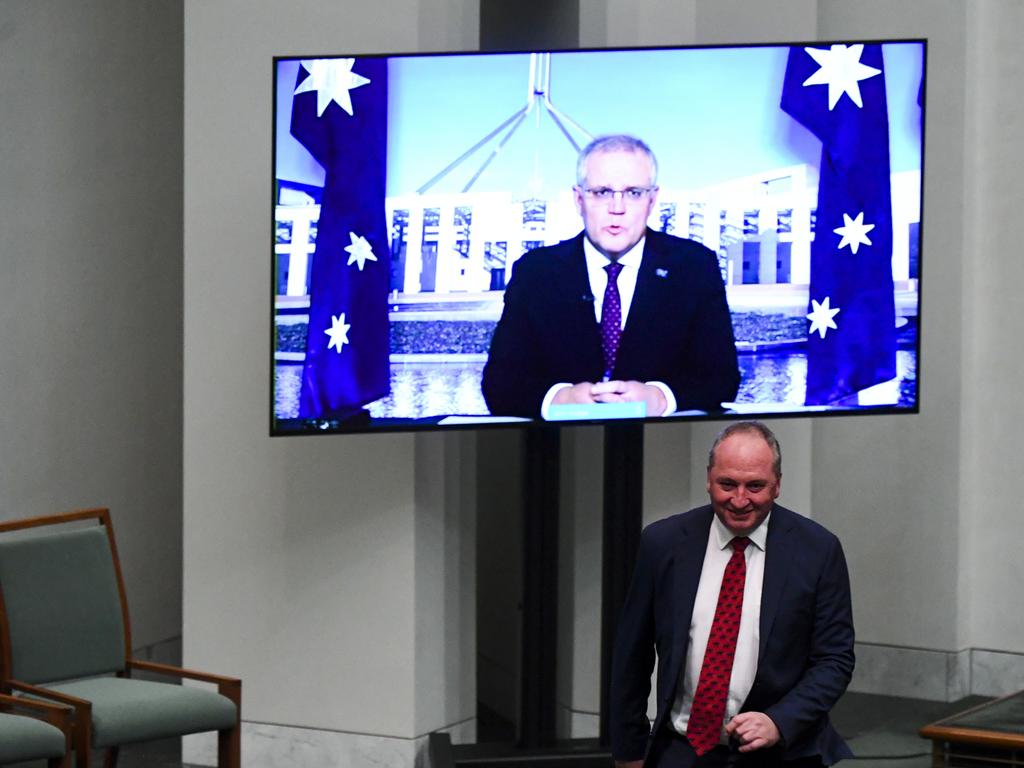CBA to consider non-binding climate vote next year
Commonwealth Bank could become the first major bank to allow a non-binding shareholder vote on climate reporting at next year’s annual meeting.

Business
Don't miss out on the headlines from Business. Followed categories will be added to My News.
A dozen or so leading Australian companies are expected to introduce non-binding shareholder votes on their climate reporting, after Commonwealth Bank became the first major bank to say it would consider the initiative for next year’s annual meeting.
CBA chair Catherine Livingstone made the commitment at Wednesday’s virtual annual general meeting as climate-related issues dominated proceedings, despite the bank’s support for net-zero emissions by 2050 in line with the Paris Agreement.
Addressing a shareholder resolution put forward by climate activist group Market Forces, Ms Livingstone said directors recognised the ongoing level of interest in the bank’s approach to managing climate change.
“I can also confirm to shareholders that the board will give consideration to a non-binding vote on our climate change report at the next AGM,” Ms Livingstone said.
While CBA’s move is a first for the banking sector, it lags BHP, which will conduct the first non-binding climate vote by shareholders of a major Australian publicly listed company at its London AGM on Thursday.
The mining giant’s local AGM will take place on November 11. Proxy adviser CGI Glass Lewis has recommended a No vote on BHP’s climate transition action plan, questioning if the company’s targets were “science-based”.
Gas producer Woodside Petroleum is the other big local corporation to have signalled its intentions, flagging a non-binding climate vote at next year’s AGM.
Dean Paatsch, co-founder of proxy adviser Ownership Matters, said he expected about a dozen local companies to lead the first wave of shareholder votes on climate reporting.
“I support it because it will make people talk to each other instead of yelling,” Mr Paatsch said.
“But there’s a lot of issues to be worked out, such as whether it’s a referendum on disclosure or the adequacy and credibility of the (climate transition) plan.
“There are no norms, and what is the assurance associated with the plans? So I’m a bit sceptical and not an unabashed fan, but these are not insurmountable issues and the direction of travel is the right one.”
Market Forces has lodged climate-related shareholder resolutions with each of the four major banks, but it had a particular gripe with CBA over its use of an International Energy Agency scenario consistent with net zero by 2070 instead of 2050.
CBA said it would update the scenario after the IEA’s next data drop, which came hours after the completion of the AGM.
Market Forces representative Jack Bertolus told the meeting that CBA was “walking back” a policy that would prevent it from funding new fossil fuel projects.
The resolution, he said, was lodged to stop CBA funding companies where use of the proceeds was “explicitly intended for new fossil fuel projects”.
The activist group also called for the introduction of targets to cut fossil fuel exposure that would be consistent with net zero by 2050.
While the resolution was not formally considered because a required change to the CBA constitution was easily defeated, the proxy count showed 14.4 per cent of shareholders were in favour.
Ms Livingstone told the meeting the bank had used a reference scenario of well below 2C of global warming, consistent with the Paris Agreement, in preparing “glide paths” for its exposure to thermal coal, oil and gas and power generation.
“It uses what we believe is the best currently available data, and has been relied upon by a number of peer banks globally,” she said.
“In our annual report, we have said we will review the ongoing suitability of that reference scenario within the next 12 months, having regard to a number of important factors, including the availability and quality of data.
“I understand that the IEA will shortly be releasing more data, and we will obviously await the outcomes of (the UN climate change conference in Glasgow) COP26.”
Also at the AGM, Ms Livingstone faced a barrage of questions about CBA offshoring more than 100 jobs to India.
She responded that the issue was not about shifting jobs; it was about adding capability to the organisation.
The bank was also “actively recruiting” in Australia, and had appointed 3000 people in the past few months with several thousand positions currently open.
“So we are definitely looking to recruit people in Australia, but we cannot get all the skills we need and we can access those through India,” Ms Livingstone said.
Finance Sector Union national secretary Julia Angrisano accused CBA of lying, saying more than 100 people had been told their jobs were going to be made redundant and their jobs would now be done in India.
“How does that not constitute offshoring?” Ms Angrisano said.
“CBA are moving jobs to India and lying to their shareholders about it at the AGM. This is extraordinary conduct.
“Our members are disgusted and disappointed by the chair’s responses today.”
More Coverage
Originally published as CBA to consider non-binding climate vote next year





